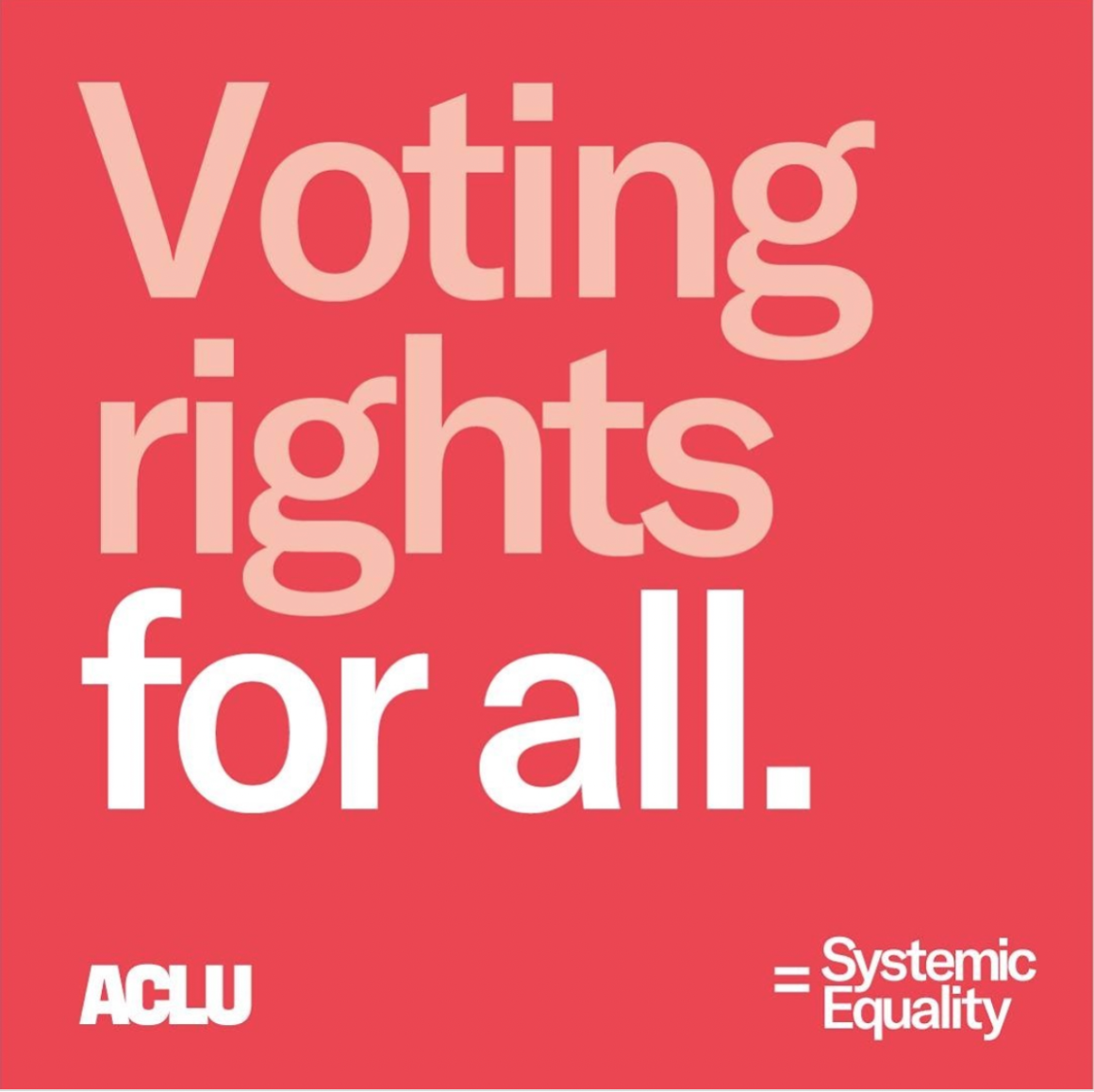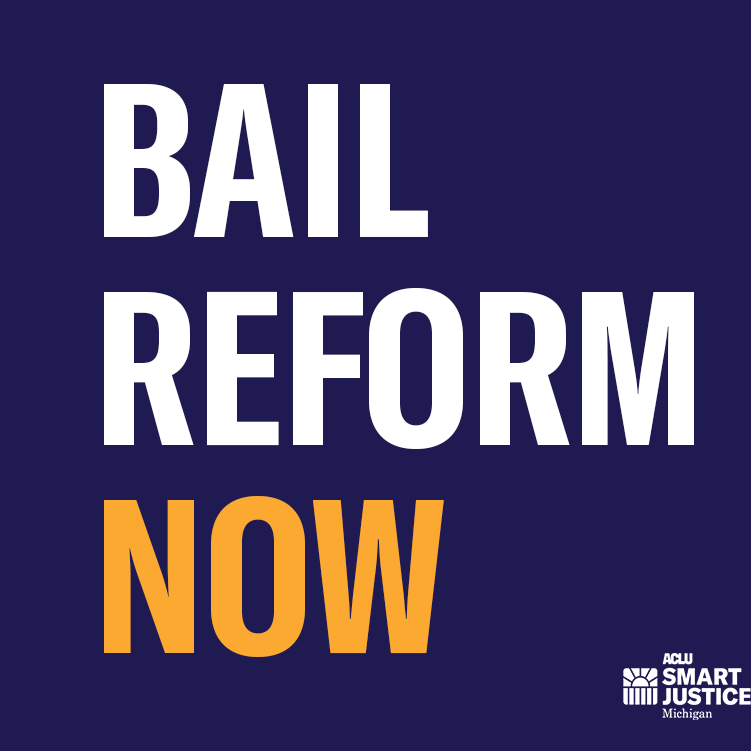Why the ACLU of Michigan is back in federal court fighting the state’s destructive Sex Offender Registry Act on behalf of me and thousands of others
By Anonymous
As a registered sex offender in Michigan, my story is both an outlier and, sadly, all too common.
In many ways, I’m no different than the roughly 45,000 other Michiganders – more than the entire population of the city of Midland – who must endure daily obstacles and harm under the state’s Sex Offenders Registry Act (SORA), even though the courts have repeatedly ruled that it is unconstitutional. What makes my case unusual is the fact that I was placed on the registry despite never committing a sex offense of any kind.
I’m not saying I never broke the law. I did.
Growing up Detroit’s west side, I fell into a life of crime at an early age. I started selling drugs and stealing things while still in middle school and kept it up in high school, but still managed to graduate with honors in English. In 1990, at the age of 20, I was arrested while attempting to rob a McDonald’s I’d recently been fired from.
Because I forced the manager and her 14-year-old son, at gunpoint, back inside the restaurant after she had closed it for the night, the charge of kidnapping was tacked on to the other felonies filed against me. In a deal with the prosecutor, I pled no contest to child kidnapping and guilty to all the other offenses.
Retroactive Shock
While I was in prison, SORA passed into law. And because it was applied retroactively, I came under SORA’s onerous umbrella. I didn’t realize all this until the time of my potential release approached, and I was told I had to take sex offender classes to qualify for parole.
I was stunned. No one ever told me that because I pled no contest to child kidnapping my crime could become a registrable offense. My debt to society for a crime committed as a young man was a heavy one: 19 years behind bars. Because I’d determined to cause my family no more heartache and hardship, I worked hard to rehabilitate myself during my time in prison.
I made great progress over the years, at one point helping run a program teaching others how to resolve disputes nonviolently. I mentored younger men as well to help them deal with life in prison, and to show them that growth and change are possible.
I also spent years preparing and planning for my release, because I was determined to make my return a success. My goal was to do more than just survive in the outside world. I wanted to help others, and to give back to my community.
What I had no inkling of was the destructive toll SORA takes. That harsh reality came crashing down on me as soon as I was released in 2009, and all my well-laid plans were shredded.
Obstacle After Obstacle
Try finding an apartment when your name is on the sex offender registry. I can tell you from experience, it is virtually impossible. The same is true for getting a job. I was afraid to even visit anyone who lived near a school. That was just the start.
Through perseverance, however, I managed to find a way forward, despite all the obstacles SORA created.
Sometimes I was able to get temporary work with friends. Or I would find some job, but that would last only so long before my status became an issue. Because of my presence on the list, some women would refuse to work with me, or there would be subtle forms of harassment from co-workers, and I’d leave before anything led to trouble. But my choices were limited – no jobs near schools, or jobs that would cause me to go anywhere near schools, like landscaping or delivery services.
I had a hard time wrapping my mind around all of it. I would lie awake in bed at night thinking, “What am I going to do to make it through this?” But I stuck to the discipline that helped me survive prison and kept moving forward.
Instead of working for others, I started my own business, doing asbestos removal, lead abatement, debris removal and other things of that nature. As a business owner, I’ve been able to employ other people. From the start, part of my focus has been on hiring other returning citizens.
Eventually, I was able to save enough money to buy a home on a land contract. It’s located on the block where I grew up. People there know me, and my story, and what the truth is. In that way, I’m fortunate not to be treated as a total pariah, as others plagued by SORA so often are.
Fighting for Justice
In an attempt to get some sort of justice for myself, and to make life less of a nightmare for others on the registry, I became one of six plaintiffs in a federal lawsuit, Does v. Snyder, filed in 2012 by the ACLU of Michigan and the University of Michigan Clinical Law Program.
We were challenging the constitutionality of Michigan’s SORA, and the courts ultimately agreed with us. In 2016, the U.S. Sixth Circuit Court of Appeals ruled that Michigan cannot continue casting people out as “moral lepers” solely on the basis of a past offense without any determination that they actually pose a risk to the community.
The court also determined what anyone who has ever been on the registry knows with certainty: it is punitive, and that is not acceptable. To continue punishing people after they’ve served their sentence – and to continue doing so for the remainder of a person’s life without any individualized consideration, as SORA does for the vast majority of people on the registry – is not justice.
But even after the courts said SORA is unconstitutional, Michigan just kept enforcing it. So, my lawyers brought a class action lawsuit, Does II v. Snyder. In February 2020, the courts said that the Does I rulings apply to everyone on the registry. The Michigan Legislature rewrote the law at the end of that year, but the new law isn’t much different from the old law.
Because of that we’ve again gone back to court in this ongoing effort to obtain justice for me and others on the list. This newest federal class action lawsuit, known as Does III, was filed last week against state officials by the ACLU of Michigan.
Does III is necessary because SORA still fails to provide for individual review of cases or any chance for removal from the registry. This forces tens of thousands of people, including people like me who didn’t even commit a sex offense, to be branded as sex offenders and subjected to extensive, and in most cases, life-long restrictions, without any consideration of our individual circumstances. That is a violation of our due process and equal protection rights. The lawsuit also argues that SORA imposes unconstitutional punishment by retroactively extending to life the registration terms of thousands of people.
The Cruelty Continues
Just like under the old law, I’m still required to register as a sex offender for life, even though I never committed a sexual offense. I think about the depth of that injustice, and feel the harmful effects of it, every single day.
Despite all the progress I’ve made as a person, and despite a decade of litigation by my lawyers, I am still required to register as a sex offender. Unless the ACLU and its allies are ultimately successful, I will be forced to continue doing so until the day I die.
I didn’t receive a life sentence. Neither did thousands of others trying to survive under the oppressive conditions SORA creates. But living under SORA, it sure feels like I got a life sentence. I am publicly branded as a sex offender for a crime that had nothing to do with sex.
It is cruel, and it must end.
Date
Thursday, February 10, 2022 - 8:30amFeatured image





